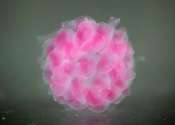A disease or medical problem is an abnormal condition of an organism that impairs bodily functions, associated with specific symptoms and signs. It may be caused by external factors, such as invading organisms, or it may be caused by internal dysfunctions, such as autoimmune diseases.
In human beings, "disease" is often used more broadly to refer to any condition that causes extreme pain, dysfunction, distress, social problems, and/or death to the person afflicted, or similar problems for those in contact with the person. In this broader sense, it sometimes includes injuries, disabilities, disorders, syndromes, infections, isolated symptoms, deviant behaviors, and atypical variations of structure and function, while in other contexts and for other purposes these may be considered distinguishable categories.









